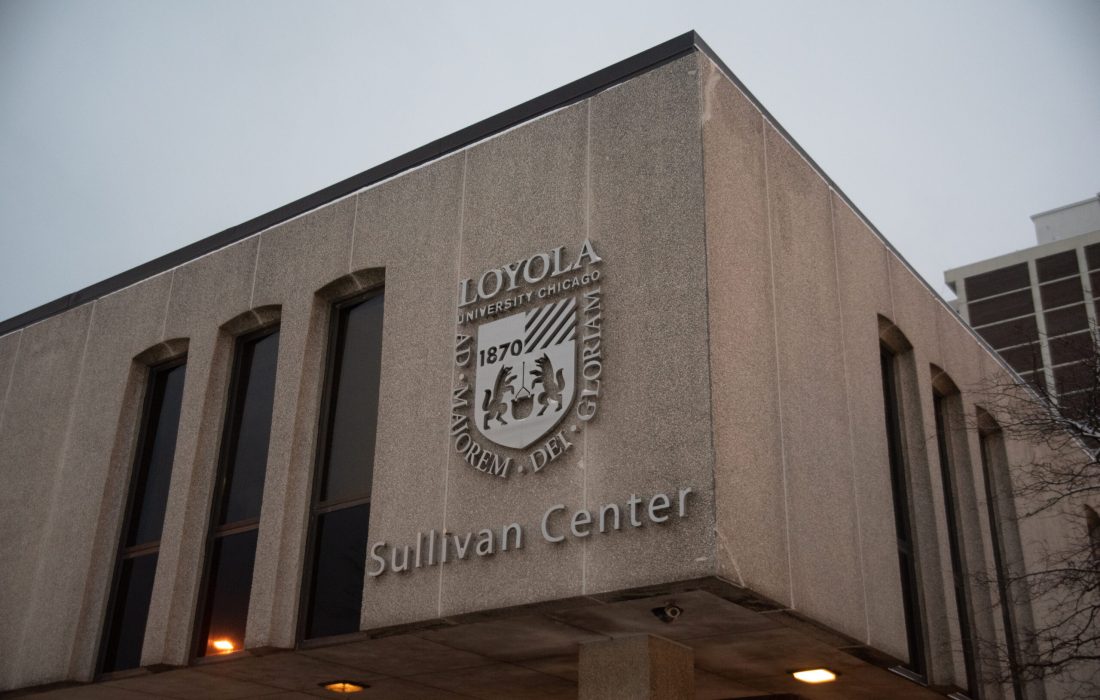The Loyola Vietnam Center in Ho Chi Minh City is beginning the process of closing permanently in the spring semester of 2023
Loyola to Close Vietnam Center Permanently Following Initial Closure for COVID-19 Pandemic
The Loyola Vietnam Center (LVC) in Ho Chi Minh City will close permanently after the end of this semester following its temporary closure in April 2020 after the onset of the COVID-19 pandemic.
According to a university press release sent to Loyola students, faculty and staff Feb. 8, the pandemic led the university to re-evaluate the study abroad programs which they offer to students.
“The University remains committed to providing impactful and diverse study abroad opportunities for our students,” the university wrote. “Throughout our 12-year presence in Vietnam, we have developed meaningful partnerships with local agencies and universities to provide our students with research, academic internships, and service-learning opportunities.”
Loyola Spokesperson Matt McDermott said there will be future opportunities for students to study abroad in Asia after the center is closed.
“The University is exploring new models for study abroad in Vietnam and students can already study at partner institutions in Asia, including Sophia University in Tokyo, Japan, and Sogang University in Seoul, South Korea,” McDermott said in an email to The Phoenix.
The LVC was headed by Chris Albright, who worked as the director and chief representative. In the press release, the university thanked him for his tenure and efforts towards the program.
“He has been involved with the LVC since it was founded in 2011 and helped grow the program until its suspension in the onset of the COVID-19 pandemic,” the university wrote.
Albright could not be reached for comment.
Clifford Shultz, a professor in the Quinlan School of Business, has been involved with the LVC since the initial idea for the center arose in 2009.
Shultz said he started at Loyola in June 2009, and by Sept. 2009 he began working with Michael Garanzini, S.J., the president of the university at the time, to start creating plans for the LVC. Shultz said he has been personally involved in Vietnam since 1991, and he was drawn to Loyola initially largely because of the university’s interest in Vietnam.
“I was the first American scholar invited to Vietnam to lecture on marketing and consumer research after the Vietnam War ended, and so I have a very serious scholarly commitment to the country,” Shultz said.
Loyola was one of the first American institutions on the ground in Vietnam, according to Shultz. Shultz said he sees the LVC as the poster child for what Loyola commonly refers to as the transformative education which they offer as a university.
Maggie Conway, a communications major, said she was interested in studying in Vietnam but was unable to due to pandemic induced closure. As an alternative, she ended up studying at the John Felice Rome Center (JFRC) in the fall semester instead.
Conway said there are a lot of abroad programs across Europe, but the closing of the LVC limits the number of study abroad opportunities students have access to in Asia.
“There is no longer a place in Asia for them to go that matches with our curriculum and our educational process,” Conway, a sophomore, said.
After visiting Vietnam on vacation three years ago, Conway said she became interested in the culture, and wanted to have the chance to go back and study there for a longer period of time. She said she is disappointed to hear about the closure of the LVC, as it means neither she nor any other students will have that option.
Conway although she doesn’t think the experience of the LVC can be fully replicated, she hopes the university advertises other schools programs in Asia, and makes the credits from those programs easier to transfer to Loyola.
Carlos Guerrero, a first-year international business major, said he was unaware Loyola had a campus in Vietnam. He said he wishes students were made more aware of the opportunity, as then there may have been more interest in attending.
“That’s really unheard of, a sister school in Vietnam,” Guerrero said. “That sounds like a pretty good opportunity to me.”
Guerrero said study abroad opportunities are vital for those in his major.
“Being able to interact with different cultures and interact with different environments personally for me is a key component in my major,” Guerrero said. “Being able to interact with others who don’t share your interest or views is very important.”
Although he had never heard of the LVC, Guerrero said he has looked into the JFRC as a potential study abroad opportunity during his time at Loyola.
Shultz said he is sad to see the LVC go, but he is interested to see the ways in which the university will amend their study abroad program in place of the experience of Vietnam.
“I think there are several of us who will miss that there is a center, and we believe that there will be some missed opportunities, but I want to strongly emphasize the network that I have with universities across the country and that others have as well,” Shultz said.
The largest difference between the previous Vietnam experiences for students with the new one will be the ability to teach Jesuit values within courses, according to Shultz.
“I think we can replicate a lot of being in country and learning with some of the Vietnamese professors we had before,” Shultz said. “Whether we can control or replicate the Jesuit model and the Jesuit values that are infused in all of the courses, that will be harder to do because we won’t have as much control over the curriculum while we are there.”
Shultz said he sees taking students to Vietnam as a valuable way to enhance their education.
“Vietnam is such an extraordinarily transformative place for anyone who goes there for a litany of reasons,” Shultz said. “The intrinsic dynamism of the place, where it is located geopolitically, geographically, the dynamism of the people, Americans history there, and I believe some very practical reasons to be engaged as business people, educators, and politicians.”
Shultz said he loves taking students to Vietnam because he enjoys seeing them have the same moment of realization which he felt when he first became interested in the country’s dynamics and importance in the world, which is a sensation which cannot be replicated in a classroom setting.
The university did not mention any plans to make changes to the JFRC.
Featured image by Aidan Cahill | The Phoenix
-

Lilli Malone is the News Editor of The Phoenix and has written for the paper since the first week of her first-year. She is studying journalism, criminal justice and political science, is on the board of SPJ Loyola and was previously the deputy news editor of The Phoenix. She has worked as a Breaking News Correspondent for The Daily Herald, and has interned at Block Club Chicago, Quotable Magazine, and UCLA. Originally from Columbus, Ohio, Malone enjoys traveling, reading, and telling the stories of Loyola and Rogers Park community members.
View all posts
Topics
Get the Loyola Phoenix newsletter straight to your inbox!


